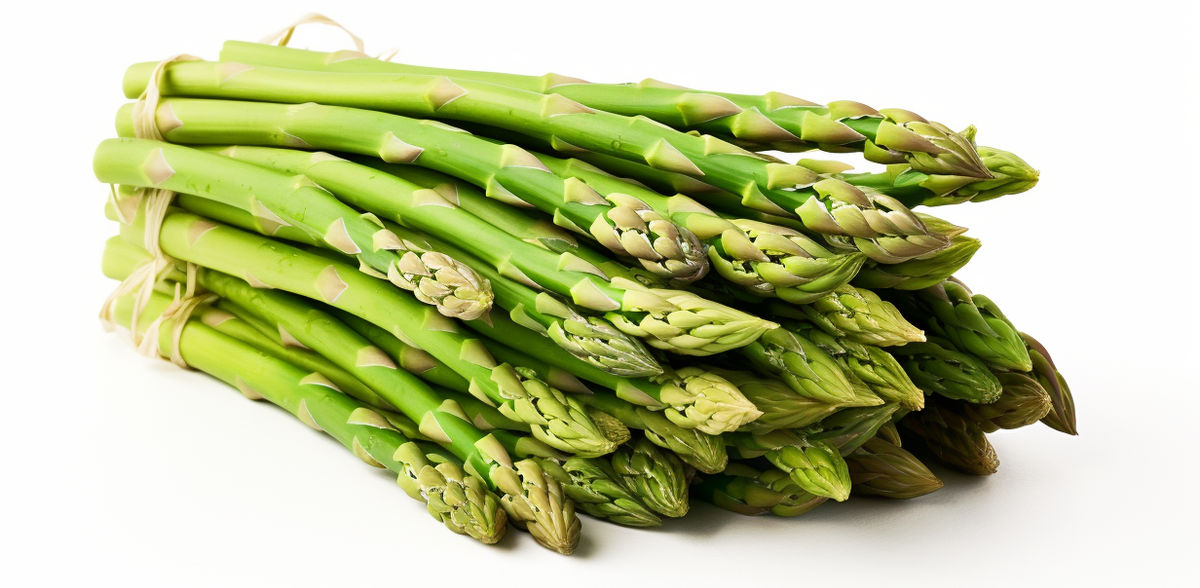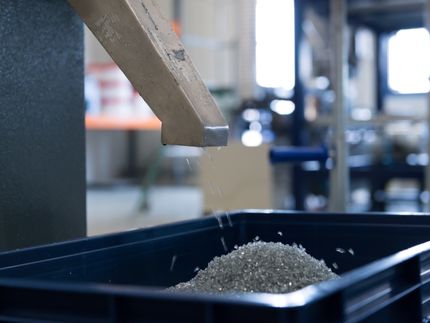Asparagus trays for plastics
On the way to a circular bioeconomy, previously unused residual materials are increasingly coming into focus
How can we use residual materials such as asparagus peelings for plastics instead of disposing of them unused? The IfBB at Hanover University of Applied Sciences and Arts will be demonstrating this at this year's Agritechnica at the stand of the Lower Saxony Ministry of Food, Agriculture and Consumer Protection in Hall 24, Stand D06. Agritechnica takes place from November 12 to 18 in Hanover.
On the way to a cycle-oriented bioeconomy, previously unused residues are increasingly coming into focus. In addition to potato and sugar beet harvest residues, asparagus peelings can also be used for bio-based plastics, particularly as fillers for biocomposites, for example. Here, they replace the wood that has been used most often up to now.
A quarter of the asparagus harvest consists of peelings and is therefore a residual material that can contribute to eutrophication when returned to the field. In order to create the technical conditions for using the peelings, they are first dried, then ground and added to the plastic processing procedure. This creates a new biocomposite material that can be further processed into various products using standard plastics processing methods.
In this way, the asparagus shells are made usable for the wood-plastic composites (WPC) market segment in particular, so that they can be used in the construction industry (e.g. for flooring, decking, cladding and fencing) and in the automotive industry. Just as Lower Saxony is the nationwide leader in asparagus cultivation, Germany is also the leading WPC producer in Europe.
This approach specifically promotes the regional circular economy and Germany as a location for innovation. The use of biogenic residues can create new sales channels, expand sales markets, saveCO2 by conserving fossil resources, relieve the wood market and forests when used as a substitute for wood-based fillers, save costs, avoid waste and sustainably increase the social acceptance of biomaterials. The project idea was developed together with the Lower Saxony Chamber of Agriculture, Hanover district office.
Note: This article has been translated using a computer system without human intervention. LUMITOS offers these automatic translations to present a wider range of current news. Since this article has been translated with automatic translation, it is possible that it contains errors in vocabulary, syntax or grammar. The original article in German can be found here.
Most read news
Topics
Organizations
Other news from the department science

Get the food & beverage industry in your inbox
By submitting this form you agree that LUMITOS AG will send you the newsletter(s) selected above by email. Your data will not be passed on to third parties. Your data will be stored and processed in accordance with our data protection regulations. LUMITOS may contact you by email for the purpose of advertising or market and opinion surveys. You can revoke your consent at any time without giving reasons to LUMITOS AG, Ernst-Augustin-Str. 2, 12489 Berlin, Germany or by e-mail at revoke@lumitos.com with effect for the future. In addition, each email contains a link to unsubscribe from the corresponding newsletter.
Most read news
More news from our other portals
Last viewed contents

PACCOR Deutschland GmbH - Zell, Germany

Can AI crave a favorite food? - Electronic tongue' holds promise as possible first step to artificial emotional intelligence

packit! Verpackungen GmbH - Waldneukirchen, Austria

Thermo Fisher Scientific - Philadelphia, USA

Hanna Instruments België - Temse, Belgium





























































